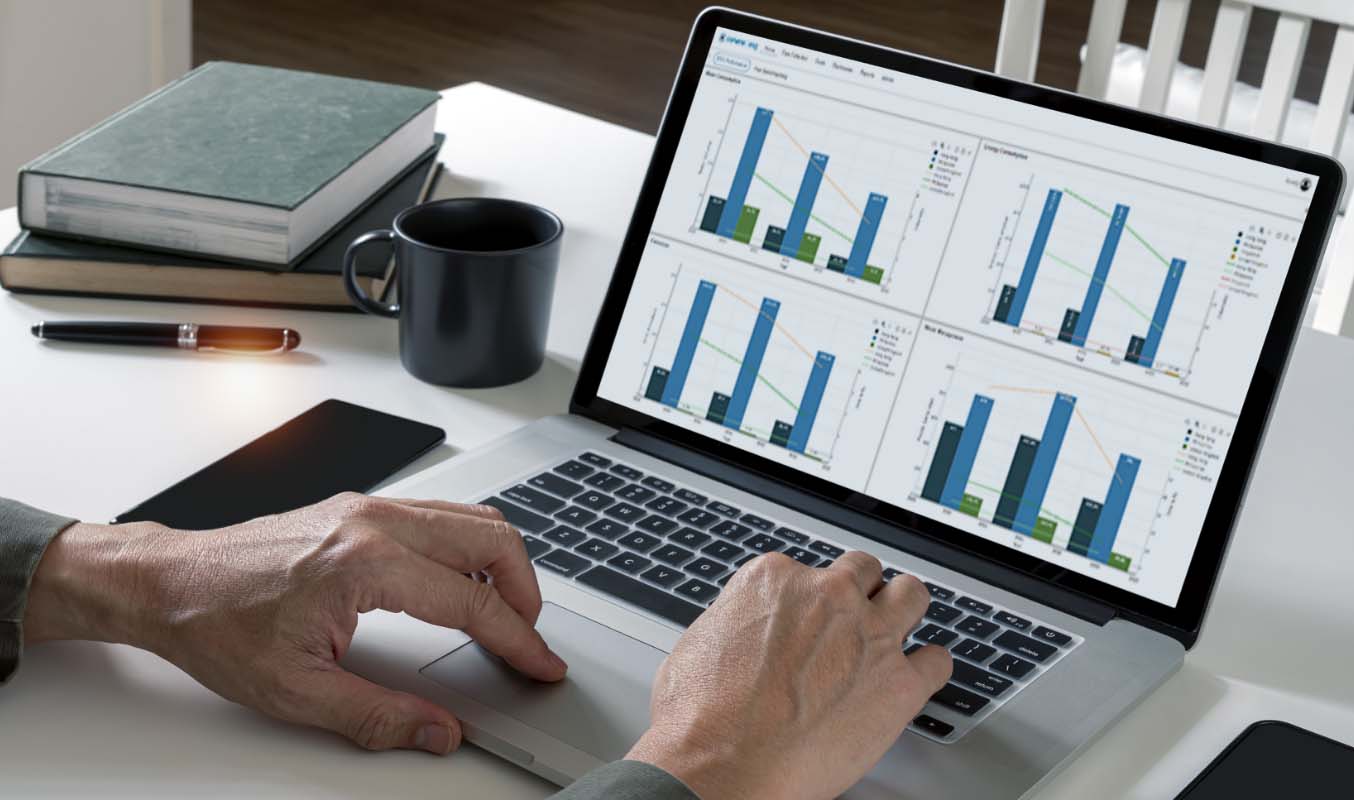Finance executives and CFOs know the importance of practical applications of digitalization in their field of work. Technologies such as advanced analytics, process automation, and cloud-based data management are elevating the finance and accounting industry in empowering ways.
Singapore Divisional President Max Loh FCPA (Aust.), shared in a 2021 research, “Digital transformation in the finance and accounting industry has been accelerated by the onset of the COVID-19 pandemic that reshaped business models and organizations globally. For many organizations, the impetus was clear – digital adoption and transformation were major enablers for businesses to survive and thrive.”
Surprisingly, despite the presence of advanced automation and analytics tools in the market, there are still organizations that use spreadsheets for their data collection and management. Here’s why this is a bad move.
Why Spreadsheets Alone Aren’t Ideal for Big Data Collection
From keeping track of business accounts to categorizing data into a logical format, spreadsheets became an essential accounting tool for businesses across the world. From its inception, it’s designed to hold and manipulate data for a purpose, and to produce graphs and charts from the numeric and text data.
Besides its accounting and calculation uses, spreadsheets are used to collect and manage different types of data, including financial data, product data, and customer data. With each worksheet roughly containing a million rows and over 16,000 columns, this tool is ideal for database creation. Other uses of spreadsheets include data sifting, chart and report generation, and the creation of invoices and receipts.
But as organizations grow and new regulations turn up, creating additional spreadsheets to compile complex data can become a sprawling mess. Such a tool lacks nuanced data security and is not considered a fully compliant audit trail.
In financial and non-financial or ESG reporting, spreadsheets can bring inefficiency since they require manual updating. This is why most modern companies jumped into the trend of implementing smarter technological solutions to manage data and maintain accurate compliance strategies.
The Analogy Between Accounting Automation and ESG Digitalization
Digitalization in the accounting field has driven value across enterprises that commit to the adaptation. To support such change, the ambitious sustainability movement — Singapore Green Plan 2030 — is established to help companies adopt sustainable habits and develop green finance solutions and markets.
But digital innovation brings not only potential improvements to the accounting sector but is also now actively incorporated into sustainability strategies and principles. Future-forward enterprises are now crafting their financial and sustainability reports side-by-side through advanced technology — helping them improve their ESG efforts and ultimately, achieve superior stock performance.
Furthermore, CFOs, who are readily familiar with finance automation, recognize the significant use of automation for managing ESG data. In a 2021 survey by Gartner, 82% of finance leaders said they expect to devote more time to advanced data analytics technologies and tools this year. This eventually enables them to meet the growing ESG data demands of not just the regulators and investors, but also the customers.
In support of such initiatives, it is also reported that the Malaysian Digital Economy Corporation is in discussion with the finance ministry to offer special grants to digital firms that achieve their ESG goals. Hence, encouraging such companies to foster sustainability practices along with their technology processes.
But how is ESG digitalization connected to digital transformation in the accounting sector?
Cloud Utilization
Accelerating ESG progress is one of the common reasons business leaders use the cloud. Some do so to improve their ESG reporting, while others use it to leverage their sustainability strategies. Much like in accounting, organizations can use the cloud to record and reduce their emissions — ultimately enabling them to connect to real-time data sources and come up with accurate carbon accounting. And as the cloud is also a secure place for storing financial intelligence, accounting and sustainability teams can get the numbers and insights for making sound decisions and reporting.
Stakeholder Satisfaction
The financial community and other stakeholders always demand a level of data integrity from companies. If they are not satisfied with the corporate disclosures, they are likely to rely on third-party data. This causes an enterprise to lose control of presenting its own narrative. Transitioning to digital technology is key to upholding the required level of data integrity for sustainability. It facilitates a streamlined connection between reporting objectives and data inputs, cross-functional collaboration, and guaranteed traceability and validation.
Moreover, automation can assist in ESG auditing, particularly on assessment or sampling activities, making the work easier and faster. Companies can also meet stakeholders’ expectations by automating their reporting process. Automation makes tracking progress on environmental targets and social KPIs available, may it be on carbon emissions or workplace diversity.
Data Analytics
The fast-growing demand for sustainability consequently feeds the awareness across financial markets that ESG is becoming a top priority for many future-forward companies. And as investors require unbiased, accurate, and current ESG data, organizations are turning to AI. AI-derived data helps determine stock-specific ESG risks and provides valuable investment inputs to amplify both financial and non-financial analysis. By adopting AI and ESG data analytics, organizations can monitor and measure their risks and performance compared to the competition.
Information Security
Considered a financially material sustainability risk, cyber risk is one area organizations must not neglect. Attacks might be common on financial networks and critical infrastructure, but cybersecurity is also an important aspect of maintaining resilience and sustainability. In implementing good governance in cybersecurity, organizations require the right IT solution to execute smarter risk mapping, which is a crucial part of any ESG strategy. Companies that want to drive transparent and standardized sustainability disclosures can establish regulations around cybersecurity. Focus on securing critical assets that the company cannot operate without.
Digitization in Financial and Non-Financial Reporting
Digitization is no question transforming the way enterprises execute their financial and non-financial reporting processes. It brings changes in internal methodologies, management approaches, and processes — enabling businesses to establish long-term value in their reporting. Financial leaders and sustainability officers use digitization to drive financial and non-financial reporting excellence — while drawing on standards set by industry regulators.
No need to manage quantitative and qualitative information manually — the right reporting technology can fully automate your reporting processes. In addition, users can access customizable and visual dashboards displaying accounting and sustainability progress, vital for generating high-quality reports.
The Benefits of Using a Digital ESG Reporting Software

On top of annual financial reports, companies now also need to publish their sustainability reports to meet the ever-growing stakeholders’ expectations. Having a dedicated sustainability team and a couple of spreadsheets doesn’t just do the work anymore. Want to automate ESG reporting? It’s time to switch to a dedicated ESG software, and here’s why:
Digitalize and automate processes
One of the main reasons companies use ESG reporting software is to make ESG data management and reporting easier. Convene ESG is designed to help companies automate data collection and validation through scheduling reminders and alerts for all collaborators. The tool also offers visualizations using graphs, allowing users to review and present data in an easier manner.
Data mapping and configuration
ESG reporting often involves disparate data sources that result in workflow inefficiency and data inaccuracy. Instead of collecting data from various data points, Convene ESG brings all information into a centralized location. Users can also format their data inputs into formats compliant with the current local and global reporting standards.
Data security and auditability
Company-prepared ESG data must be kept protected at all times to maintain data integrity. Convene ESG is a secure governance software that consolidates data with an evidence trail. The software even allows users to create their ESG environment tailored to their requirements. With the proper ESG tool, managing the security and traceability of company ESG data can be more effective.
Goals tracking and benchmarking
Setting goals is a vital part of creating stronger ESG performance and value, and an organization needs a tool that can help track each objective. Convene ESG has a dedicated goal tracking dashboard equipped with in-progress and complete tabs views. In Convene ESG, goals are not the only ones that can be tracked, but also the competition. Companies access the latest sustainability reports of their peers — even the specific topics they report to. Internal benchmarking is also readily available for better risk assessment and response.
Convene ESG: Your ESG Report Process Made Easier

With its automated data collection and performance benchmarking, Convene ESG makes sustainability reporting like a walk in the park. Publish quality sustainability reports with your annual financial reports using Convene ESG’s performance benchmarking, goals tracking, and trend analysis.
Take the same rigour and comprehensibility applied in your financial reports with Convene ESG. Want to know how? Find out about the amazing features of Convene ESG here and request a free demo today!













